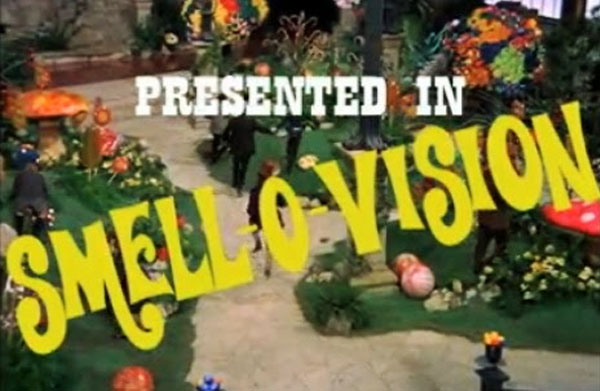Yesterday’s post about the Toronto International Film Festival caused quite a stir, with people either loving or hating my argument that the event isn’t for movie fans. In case you missed it, here’s the quick and dirty: TIFF requires people to pay inflated prices to wait in long lines to see movies in venues that often aren’t built to show them.
 Like all such events, the festival is mainly about business. Whether it’s independent producers hoping to secure a distribution deal, those same distributors looking to build buzz for movies they’ve already secured or the city of Toronto aiming to make itself look cooler, the event is one big financial transaction. While TIFF can’t exist without movie-goers - the people who are subjected to all of the inconveniences above - they are plainly treated as an afterthought.
Like all such events, the festival is mainly about business. Whether it’s independent producers hoping to secure a distribution deal, those same distributors looking to build buzz for movies they’ve already secured or the city of Toronto aiming to make itself look cooler, the event is one big financial transaction. While TIFF can’t exist without movie-goers - the people who are subjected to all of the inconveniences above - they are plainly treated as an afterthought.
Some readers didn’t like that characterization and felt the need to justify why they attend TIFF. A few of the arguments, like how the long lineups provide fans with an opportunity to talk movies with their fellow attendees, made sense even though I wouldn’t consider them a worthy tradeoff for all the other issues. But, as they say, to each his own.
One particular excuse, however - that the fest is the only place to see certain rare movies - was a load of hooey.
It’s not the 1950s anymore. If a creator can’t secure a top-shelf distributor for his or her work, there are many options. Indeed, there has never been more choice. Film makers today can sell or give away their movies through a variety of outlets, including iTunes, Netflix (which is almost tailor made for films that nobody else seems to want), YouTube or their own websites. They can even have their films “pirated” through file-sharing, but more on that in a second.
Why would anyone want to do any of that? Obviously, putting a film out on the internet for cheap or for free isn’t going to result in the sort of riches that scoring the distribution services of an Alliance-Atlantis or 20th Century Fox might. But, as anyone involved with any film anywhere will attest to, the most important goal behind any movie is to get it seen by people. While film festivals are a good way to do that, they’re no longer the only way of doing so.
It’s the same for virtually every medium. It’s why singers - including the mighty Justin Bieber - put videos on YouTube and it’s why people write for the Huffington Post for free. Exposure is its own form of currency. While a creator may take a bath on a current work, the exposure can and often does translate to dollars on future efforts.
A few readers rankled at my suggestion of using torrents and other file-sharing methods to get hard-to-find movies, because doing so is “piracy” that steals money from the pockets of the creators. Evidently, Hollywood’s attempts at brainwashing people against file-sharing are working because there are many creators - myself included - who find nothing wrong with their work being traded about for free. Why? Again, because it results in exposure.
Documentary director Sam Bozzo discussed this last year. As he told TorrentFreak:
The only films that are hurt by torrent sharing are mediocre and bad films. In contrast, the good films of any genre only benefit from file-sharing. Due to this, I feel the current file-sharing trend is a catalyst for a true evolution in filmmaking.
Furthermore, Bozzo contacted the person who had uploaded his film Blue Gold and asked if she could help spread the word about it and solicit donations on his behalf.
I received many donations and emails of support from those who downloaded the film, but I furthermore believe that viewers spread the word of the film to their non-torrent-downloading friends and that DVD sales increased due to the leak. For me, the torrent leak was ultimately “free advertising”, and I am the only truly independent documentary filmmaker I know making his money back this year.
There are, of course, many who disagree with him, including the people behind the Oscar-winning Hurt Locker, who are now apparently bringing lawsuits against file-sharers to Canada. That’s their prerogative, as is the right to believe that all file-sharing is piracy, although I’m of the belief that it isn’t if the creator doesn’t think it is.
While there are some valid reasons for why people like going to TIFF despite all the hassles, its monopoly on good obscure movies isn’t realistically one of them anymore. To paraphrase Bozzo, good films will end up being seen and their creators will benefit one way or another, which means some TIFF aficionados will have to think of new justifications for subjecting themselves to its many inconveniences.
 We were, of course, suffering from the sort of irrational exuberance that one typically feels after having one’s adrenal glands stimulated for several hours. Once post-film sobriety settled in, we did return to sanity. As good as The Avengers was and is, surely it’s not the best movie of all time. Or is it?
We were, of course, suffering from the sort of irrational exuberance that one typically feels after having one’s adrenal glands stimulated for several hours. Once post-film sobriety settled in, we did return to sanity. As good as The Avengers was and is, surely it’s not the best movie of all time. Or is it?





